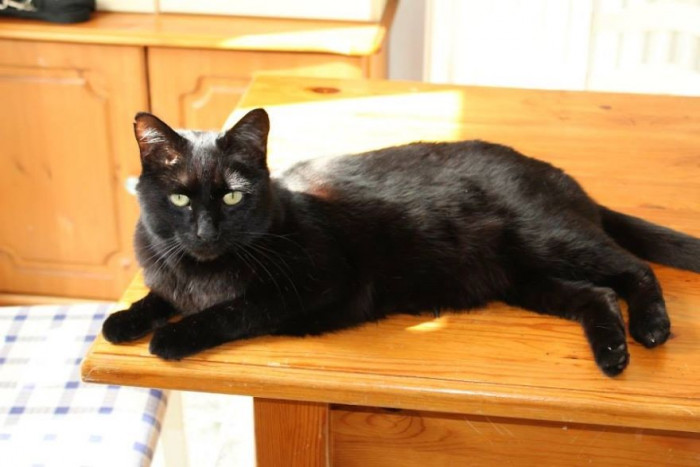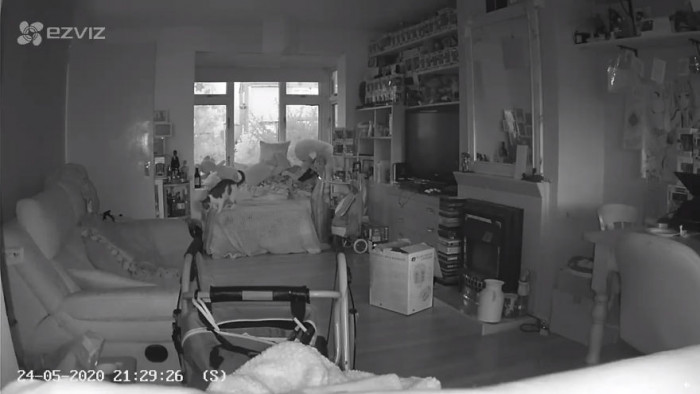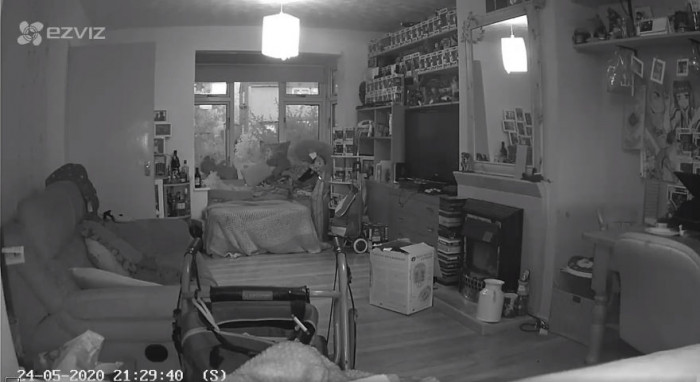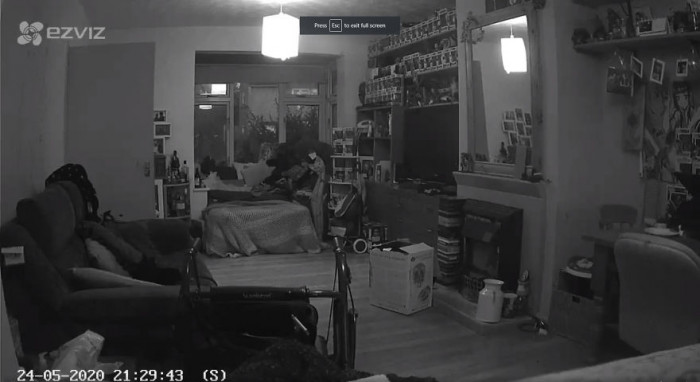Deceased Cat Believed To Have Visited Woman's Room Precisely One Year After She Died
Losing a pet cat is one of the heaviest blows. Every one of us deals with loss differently.
But the important thing is to deal with it, and not to deny the pain. A Reddit user going by the name of chlochan from Swindon, England, posted a video in which she allegedly filmed her deceased cat named Blackjack.
People responded with hundreds of explanations for this theory. Among the likely explanations were the “stray blanket” theory, the contrast-brightness difference between the camera and the apartment, a camera matrix problem, etc.
Apart from a few people who firmly rejected the presence of cat ghosts, nobody was "sure." Of course, maybe since so many of us know the pain of a beloved cat's death, that we all just wanted this possible deceased cat sighting to truly be a cat sighting, because we all want to know that our cats are watching over us even after we are no longer able to watch over them.
This is Blackjack

Chloe says: "It was a normal day, had been out for a few hours, had just got in and went to check my two cats were in so I could open the front door back up to take the back seats for my partner’s stepdad’s minivan out to him without the cats running out the door and getting in the way."
"You can see I look at the sofa, but I didn’t notice anything out of the ordinary. It was only when I checked back on the camera (like I do any time we go out) that I noticed something weird, and it seemed like my cat, Blackjack, that passed away exactly a year ago."


Exploring Grief and Loss
Dr. Mark Thompson, a psychologist specializing in grief, notes that experiences of loss can manifest in unique ways.
People often report feeling a sense of connection with deceased loved ones, which can be both comforting and perplexing.
This phenomenon aligns with attachment theory, which suggests that bonds formed during life can persist even after death.
Exploring Grief and Post-Mortem Connections
Dr. Rachel Adams, a clinical psychologist specializing in grief, highlights that experiences of perceived contact with deceased loved ones are not uncommon.
Research indicates that these experiences often serve as a coping mechanism, helping individuals process their loss.
In many cases, such experiences can provide comfort and a sense of continued connection, particularly during significant anniversaries.



Furthermore, the belief that a deceased pet might return is common among individuals coping with loss.
Research in psychology indicates that such experiences can be a part of the grieving process, providing a way for individuals to cope with the absence.
These encounters can help individuals express unresolved feelings and maintain a connection with the deceased.
From a psychological perspective, these phenomena can be understood through the lens of attachment theory.
According to studies, people maintain emotional bonds with deceased loved ones that can manifest in various ways, including perceived visits or communications.
This ongoing connection can be crucial in navigating the grieving process and finding closure.


Owner’s partner and two kitties named Logan and Rummy don’t let her feel lonesome

Cultural Perspectives on Afterlife Beliefs
Beliefs about the afterlife and communication with the deceased vary widely across cultures.
Dr. Maria Gonzalez, a cultural psychologist, emphasizes that these beliefs can provide comfort to those grieving.
Understanding these perspectives can help individuals find peace and meaning in their experiences.
Cultural Perspectives on Afterlife Beliefs
Cultural beliefs around death and the afterlife also play a significant role in how individuals interpret these experiences.
For instance, in many cultures, the belief in spirits or ancestral presence can provide a framework for understanding these phenomena.
Research suggests that cultural context can shape the narratives we construct around grief and loss.
Although she misses Blackjack terribly, the user is not alone. She has a loving partner and two kitties named Logan and Rummy. Perhaps Blackjack got bored up there and decided to visit his family once more.


Additionally, the concept of 'continuing bonds' is central to understanding how people cope with loss.
Studies in the field of bereavement psychology emphasize that maintaining a connection with the deceased can aid in emotional healing and adjustment over time.
Encouraging rituals or practices that honor the memory of the deceased can foster a sense of ongoing presence.
Psychological Analysis
Individuals often describe encounters with deceased loved ones as a way to cope with their grief.
Our in-house psychologist notes that maintaining a connection with those we've lost can be a vital part of the healing journey.
Analysis generated by AI
Analysis & Alternative Approaches
In conclusion, experiences of perceived visits from deceased loved ones highlight the complexity of grief and the human need for connection.
Research supports the notion that these experiences can be part of a healthy grieving process, offering comfort and facilitating healing.
Ultimately, recognizing that such experiences can be part of normal grief allows for a healthier processing of emotions.
Encouraging individuals to share their feelings and stories can create a supportive environment for healing.
Support groups and counseling can provide essential spaces for people to explore their grief in a constructive way.
Analysis & Alternative Approaches
In conclusion, the psychological aspects of grief and attachment are complex and deeply personal.
Understanding that feelings of connection with the deceased can be a healthy part of the grieving process is essential.
Therapeutic support can help individuals navigate these experiences, fostering healing and closure.



